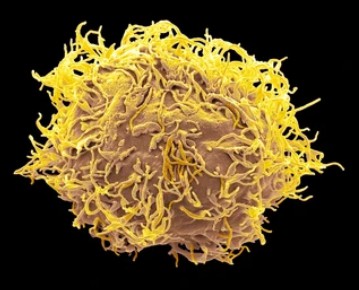Mesenchymal Stem Cell Transcription Factors
Related Symbol Search List
- EBF3
- ETV5
- GATA6
- HMGA2
- JUN
- MYF5
- MYOCD
- MYOG
- NFATC2
- PAX3
- PDX1
- PRDM16
- SMAD9
- SNAI1
- SOX11
- SOX9
- STAT1
- STAT3
- TBX18
- p53
- ZBTB16
Immunology Background
Overview of Mesenchymal Stem Cell Transcription Factors

Mesenchymal stem cell transcription factors play an instrumental role in regulating the self-renewal, differentiation, and functional maintenance of mesenchymal stem cells. These transcription factors control the fate decision and functional properties of mesenchymal stem cells by regulating gene expression and chromatin remodeling. Some typical transcription factors have been identified and extensively studied, such as RUNX2, SOX9, PPAR-γ, and MYOD. They are involved in the regulation of mesenchymal stem cell differentiation toward osteoblasts, chondrocytes, adipocytes, and muscle cells, respectively. In addition to these known transcription factors, recent studies have identified other novel transcription factors and regulatory mechanisms, further enriching our understanding of the mesenchymal stem cell transcription factor network. In terms of technical approaches, transcriptome analysis, proteomics, cell culture, and gene editing provide powerful tools and strategies to study these transcription factors.
Advances in the study of mesenchymal stem cell transcription factors have helped us to better understand the differentiation mechanisms and functional properties of mesenchymal stem cells. Meanwhile, the emerging technological approaches have provided us with new tools and strategies for the in-depth study of these transcription factors, promoting the development and application prospects of the stem cell field.
Research Areas of Mesenchymal Stem Cell Transcription Factors
The field of mesenchymal stem cell transcription factors is very broad and involves several important biological processes and diseases of mesenchymal stem cells.
- First and foremost, these transcription factors play a critical role in the self-renewal and proliferation of mesenchymal stem cells. By regulating the expression of key cell cycle regulatory genes and self-renewal-related genes, they maintain the numerical stability and proliferative potential of mesenchymal stem cells in vivo.
- Secondly, mesenchymal stem cell transcription factors promote the development of mesenchymal stem cells towards specific differentiation, such as osteoblasts, lipogenic cells, and chondrocytes. These transcription factors regulate the differentiation ability and cell fate of mesenchymal stem cells by activating or repressing specific transcriptional target genes.
- In addition, mesenchymal stem cell transcription factors are also closely related to the immunoregulatory ability of mesenchymal stem cells, affecting the function of immune cells and inflammatory responses, with potential applications for the treatment of immune-related diseases.
- Finally, these transcription factors also play vital roles in the occurrence and development of mesenchymal stem cell-related diseases, such as tumors, osteoarthritis, and cardiovascular diseases. The study of these transcription factors will help us to better understand the mechanism of mesenchymal stem cells involved in disease occurrence, and is expected to provide new targets and therapeutic strategies for the treatment of related diseases.
Overall, the study of mesenchymal stem cell transcription factors offers great promise for the development of innovative regenerative medicine treatments. Further studies will help to reveal more functionalities and mechanisms of these transcription factors, which will promote the further development of clinical applications of mesenchymal stem cells and provide new therapeutic avenues for the treatment of various diseases and injuries.

